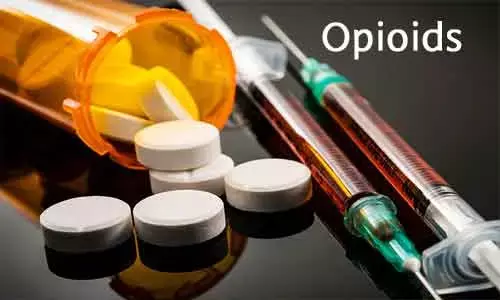- Home
- Medical news & Guidelines
- Anesthesiology
- Cardiology and CTVS
- Critical Care
- Dentistry
- Dermatology
- Diabetes and Endocrinology
- ENT
- Gastroenterology
- Medicine
- Nephrology
- Neurology
- Obstretics-Gynaecology
- Oncology
- Ophthalmology
- Orthopaedics
- Pediatrics-Neonatology
- Psychiatry
- Pulmonology
- Radiology
- Surgery
- Urology
- Laboratory Medicine
- Diet
- Nursing
- Paramedical
- Physiotherapy
- Health news
- Fact Check
- Bone Health Fact Check
- Brain Health Fact Check
- Cancer Related Fact Check
- Child Care Fact Check
- Dental and oral health fact check
- Diabetes and metabolic health fact check
- Diet and Nutrition Fact Check
- Eye and ENT Care Fact Check
- Fitness fact check
- Gut health fact check
- Heart health fact check
- Kidney health fact check
- Medical education fact check
- Men's health fact check
- Respiratory fact check
- Skin and hair care fact check
- Vaccine and Immunization fact check
- Women's health fact check
- AYUSH
- State News
- Andaman and Nicobar Islands
- Andhra Pradesh
- Arunachal Pradesh
- Assam
- Bihar
- Chandigarh
- Chattisgarh
- Dadra and Nagar Haveli
- Daman and Diu
- Delhi
- Goa
- Gujarat
- Haryana
- Himachal Pradesh
- Jammu & Kashmir
- Jharkhand
- Karnataka
- Kerala
- Ladakh
- Lakshadweep
- Madhya Pradesh
- Maharashtra
- Manipur
- Meghalaya
- Mizoram
- Nagaland
- Odisha
- Puducherry
- Punjab
- Rajasthan
- Sikkim
- Tamil Nadu
- Telangana
- Tripura
- Uttar Pradesh
- Uttrakhand
- West Bengal
- Medical Education
- Industry
Treatment with buprenorphine linked to reduced opioid use: Study

USA: Treatment with buprenorphine-naloxone versus methadone results in a greater reduction of opioid use among adults with mental disorders and comorbid opioid use disorder (OUD), finds a recent study in the journal Addiction.
In patients with OUD, mental disorders are common, the researchers noted a need to incorporate complex factors involved in influencing outcomes of medication treatment for OUD (MOUD).
Against the above background, Yih-Ing Hser, University of California, Los Angeles, and colleagues aimed to investigate whether a reduction in opioid use differs when treated by either buprenorphine-naloxone (BUP) or methadone (MET) among adults with comorbid OUD and mental disorders.
Adults with OUD were randomized to receive either BUP or MET treatment for 24 weeks and followed up in three yearly assessments. The present secondary analyses were based on 597 participants who completed all assessments.
The outcome measures were the number of days of using opioids per month during the follow-up period. The Mini-International Neuropsychiatric Interview (MINI) was used to classify participants into three groups: Lifetime Mood Disorder (n=302), Lifetime Mental Disorder Other Than Mood Disorder (n=114), and No Mental Disorder (n=181).
A time-varying predictor was medication treatment (BUP, MET, no treatment) during the follow-up period.
Key findings of the study include:
- Based on Zero-Inflated Poisson (ZIP) mixed regression analysis, it was found that relative to no treatment, opioid use during the follow-up was significantly reduced by BUP (OR, 0.12 for any use; RR, 0.77 for days of use) and by MET (OR, 0.33 for any use; RR, 0.78 for days of use).
- Relative to MET, BUP was associated with a lower likelihood of any opioid use among participants with mood disorders (OR, 0.52) and for participants without mental disorder (OR, 0.37), and fewer number of days using opioids (RR, 0.37) among participants with other mental disorders.
Reference:
The study titled, "Long-term Follow-up Assessment of Opioid Use Outcomes among Individuals with Comorbid Mental Disorders and Opioid Use Disorder Treated with Buprenorphine or Methadone in a Randomized Clinical Trial," is published in the journal Addiction.
DOI: https://onlinelibrary.wiley.com/doi/10.1111/add.15594
Dr Kamal Kant Kohli-MBBS, DTCD- a chest specialist with more than 30 years of practice and a flair for writing clinical articles, Dr Kamal Kant Kohli joined Medical Dialogues as a Chief Editor of Medical News. Besides writing articles, as an editor, he proofreads and verifies all the medical content published on Medical Dialogues including those coming from journals, studies,medical conferences,guidelines etc. Email: drkohli@medicaldialogues.in. Contact no. 011-43720751


